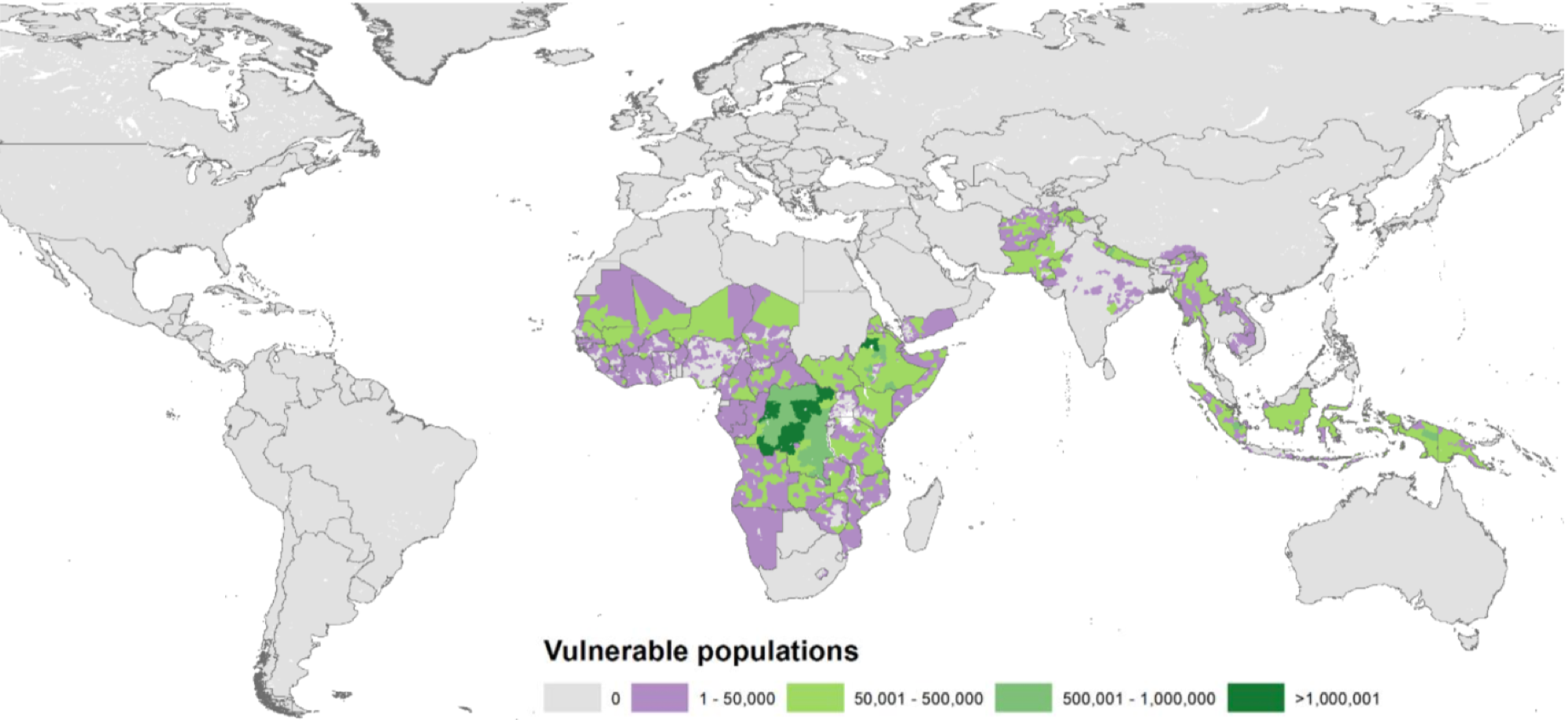Mapping vulnerability to snakebite envenoming
Snakebite mainly affects poor and rural communities in developing countries, where both encounters with venomous snakes are more frequent and access to life-saving healthcare is limited or absent. It is estimated that more than 125'000 deaths per year are due to snakebite envenoming globally, with an additional 500'000 severe disabilities (physical and/or psychological). This ranks snakes as the third animal causing the highest number of human deaths on the planet. The Lancet published a paper titled “Vulnerability to snakebite envenoming: a global mapping of hotspots” , which is well aligned with research at the Institute of Global Health.

At University of Geneva, the Precision One Health Unit of the Institute of Global Health and the Institute for Environmental Sciences have teamed with Geneva University Hospitals to lead the international project SNAKE-BYTE. This project started in March 2018 for four years, funded by the Swiss National Science Foundation, and will seek to understand the incidence of snakebite on humans and animals in Cameroun and Nepal through very large field studies, and with the modelling of geographic accessibility to antivenom and the possible impacts of future environmental changes in these regions.
Please read the full article here, and learn more about the SNAKE-BYTE project.
15 Aug 2018